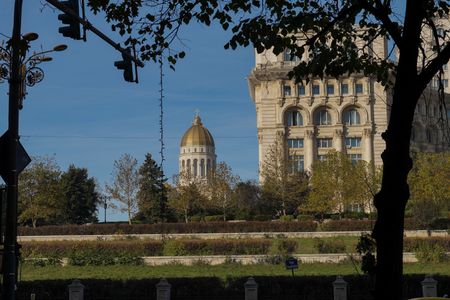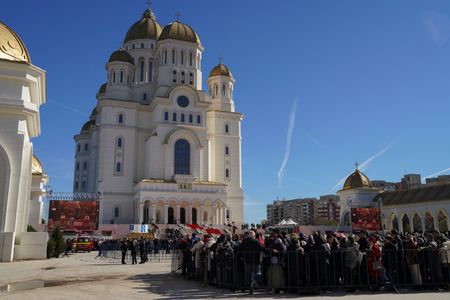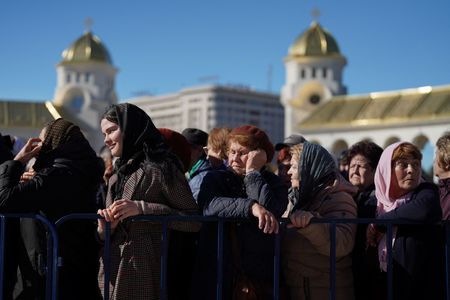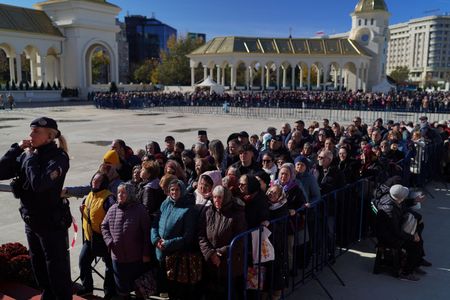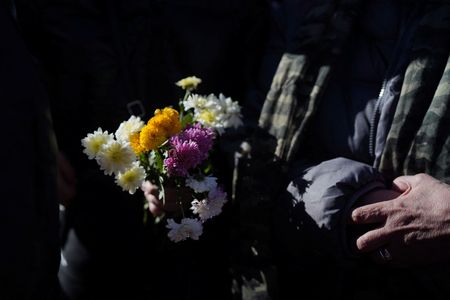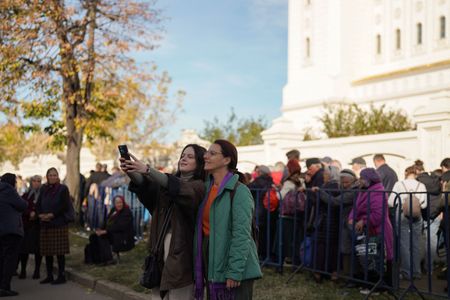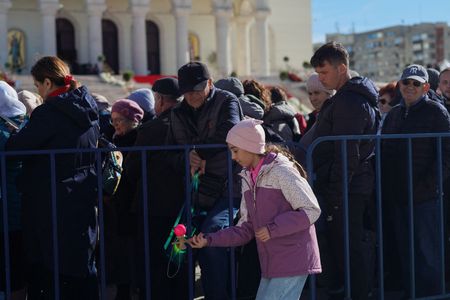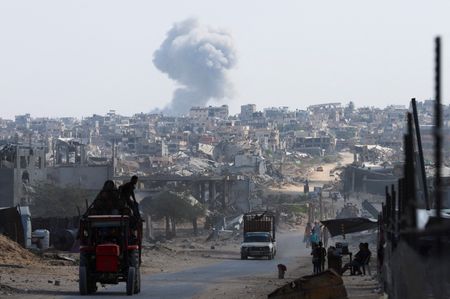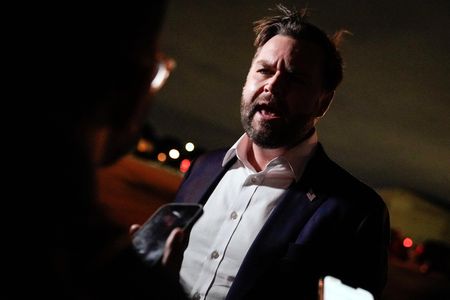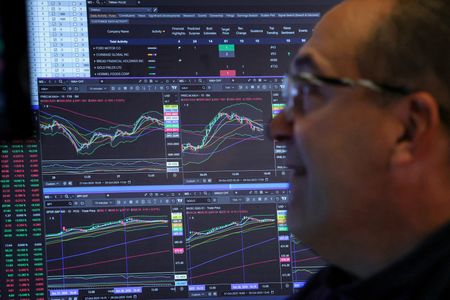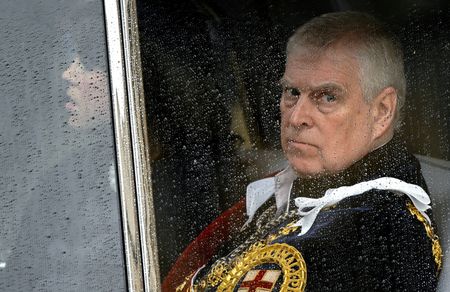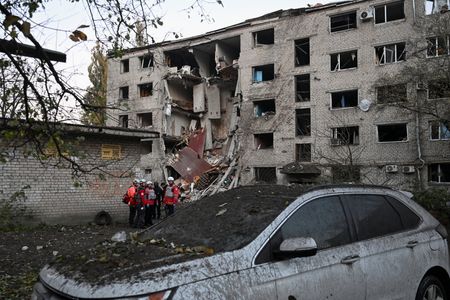BUCHAREST (Reuters) -Maria Rusu and her husband drove all night from their hometown of Cluj in western Romania to the capital Bucharest to visit the country’s nearly completed national cathedral, now the world’s largest Orthodox Christian church.
Like Rusu, hundreds of thousands of Romanians from across the country and abroad have rushed to visit the cathedral since Sunday, when it opened its doors after 15 years of construction.
“We came specifically to see the church, to walk inside to the altar,” said Rusu, a retired 72-year-old economist after hours of waiting in line on Thursday as a Mass was projected on screens. “Romania deserves it.”
The new building will become the seat of the Romanian Orthodox Church, which previously used a much smaller patriarchal cathedral built in the mid-1600s in what is now downtown Bucharest.
The new cathedral’s mosaic iconography was consecrated on Sunday in a ceremony led by the spiritual head of the world’s Orthodox Christians, Ecumenical Patriarch Bartholomew, and Romanian Patriarch Daniel.
Plans for a national cathedral date back more than a century after Romania gained its independence, but were repeatedly dashed by two world wars, decades of secular communist rule and a fragile transition before accession to the European Union.
“What hadn’t been possible before in 126 years was achieved in the last 15 years,” said priest Adrian Agachi, the representative of the Romanian Patriarchate.
Agachi said up to 40,000 pilgrims could visit the cathedral daily, and that the church estimated hundreds of thousands will pass through to the altar by the end of the week.
The cathedral stands 127 metres (417 ft) tall, can seat 5,000 inside and accommodate tens of thousands on its esplanade.
Tucked behind the parliament building, which was built under communism by uprooting neighbourhoods and tearing down or moving churches, the cathedral has so far cost around 270 million euros ($315 million), mostly from public funds, a source of contention among its critics.
The church wields considerable influence as it remains one of the most trusted institutions in the socially conservative country of 19 million, 85% of whom identify as Orthodox.
($1 = 0.8575 euros)
(Reporting by Luiza Ilie)

